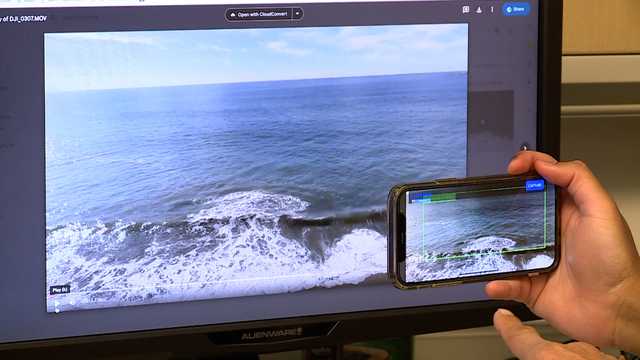It all started with a love for artificial intelligence, the sea, and a heartbreaking tragedy.
The inception of an innovative AI system designed to detect rip currents began with Professor Alex Pang from the University of California, Santa Cruz, during a windsurfing expedition in 2015. The impetus for this endeavor was the unfortunate loss of two UCSC students due to drowning.
Reflecting on the incident, Pang shared, “Around the same time, we actually lost two UCSD students to rip currents as well. It provided the motivation to prioritize this work and put more emphasis on it.”
Thus, Pang and his team embarked on a mission to develop a tool capable of identifying the hidden peril beneath the ocean’s surface.
Rip currents, characterized by swift currents of water, pose a significant danger to swimmers as they are not easily discernible.
“Our objective is to prevent individuals from encountering hazardous situations by familiarizing them with the appearance of rip currents,” Pang emphasized.
Utilizing machine learning techniques, the system is trained to recognize indicators of rip currents using video footage from cameras that monitor the waves, processed through sophisticated algorithms.
Pang elucidated, “The algorithm functions by pinpointing the locations of the rips, which are highlighted by red boxes.”
Among the diverse objectives of this project is to aid lifeguards and emergency responders in their lifesaving efforts.
Meanwhile, engineering student Fahim Khan is dedicated to transforming this technology into a user-friendly mobile application accessible even without an internet connection. Khan expressed his passion for leveraging computer science for socially impactful projects with practical utility.
While acknowledging the need for additional data and improvements in accuracy and user experience, Khan envisions broader applications of AI in areas such as coastal erosion and sea level rise. Nonetheless, the primary focus remains on the paramount goal of preserving lives.






